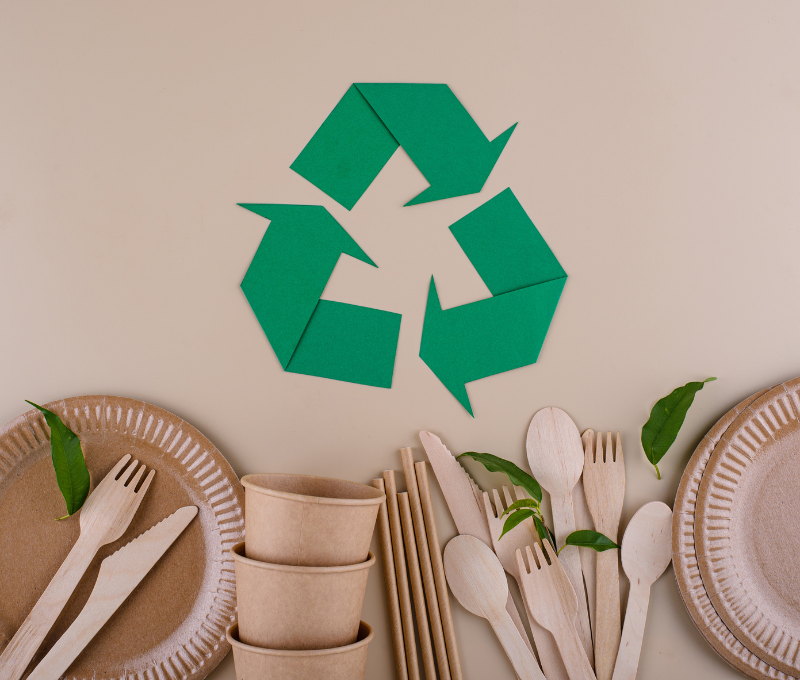Maximizing Sustainability: A Holistic Approach to Packaging Lifecycle Management
In today’s eco-conscious world, sustainable packaging has emerged as a pivotal focus for businesses aiming to reduce their environmental footprint. Every stage of the packaging lifecycle presents challenges and opportunities for promoting sustainability, from inception to disposal. At LEC Partners, we specialize in guiding businesses through the intricate web of packaging lifecycle management, offering strategic insights and solutions to maximize environmental stewardship. Join us as we explore the comprehensive journey of sustainable packaging, exploring key considerations and best practices at each stage.
Understanding the Packaging Lifecycle
The lifecycle of sustainable packaging encompasses a series of interconnected stages, each exerting a significant influence on environmental impact. Our consulting approach begins with a thorough examination of these stages:
- Design: Thoughtful design considerations are essential for creating functional and environmentally friendly packaging. Material selection is critical in determining packaging sustainability, with renewable and biodegradable materials often preferred over conventional plastics. Our consultants collaborate with businesses to optimize packaging designs for minimal environmental impact, prioritizing recyclability, durability, and resource efficiency.
- Manufacturing: The manufacturing process represents a pivotal stage in the packaging lifecycle, with opportunities to reduce energy consumption, minimize waste, and lower emissions. Through advanced manufacturing techniques and process optimization, businesses can enhance the sustainability of their packaging operations while maintaining product quality and cost-effectiveness. Our consultants provide tailored recommendations for implementing sustainable manufacturing practices, from adopting renewable energy sources to optimizing production workflows.
- Distribution: Efficient distribution channels are essential for minimizing packaging’s environmental footprint, reducing transportation-related emissions, and reducing resource consumption. Strategic decisions regarding packaging size, weight, and configuration can significantly impact transportation efficiency and logistics sustainability. Our consulting services encompass supply chain analysis and optimization, helping businesses streamline distribution processes and minimize environmental impact throughout the packaging lifecycle.
- Consumer Use and Disposal: The critical aspect of the lifecycle is how consumers interact with packaging during use and disposal. Sustainable packaging should encourage responsible consumer behaviors, such as recycling or composting, while minimizing waste and environmental harm. Designing packaging with clear disposal instructions and promoting recycling programs can facilitate proper end-of-life management
Challenges and Opportunities
At each stage of the packaging lifecycle, businesses encounter unique challenges and opportunities for enhancing sustainability:
- Design: Balancing functionality with sustainability can be challenging, requiring careful consideration of material properties, performance requirements, and end-of-life considerations.
- Manufacturing: Adopting sustainable manufacturing practices may involve upfront investment costs, but can yield long-term benefits regarding operational efficiency, cost savings, and environmental stewardship.
- Distribution: Optimizing distribution processes requires stakeholder collaboration and may involve trade-offs between efficiency and sustainability. Strategic planning and technology integration are crucial to achieving sustainable logistics solutions.
- Consumer Use and Disposal: Educating consumers about proper disposal methods and incentivizing responsible behaviors is essential for maximizing the sustainability of packaging throughout its lifecycle.
Best Practices for Minimizing Environmental Impact
Based on our extensive experience in sustainable packaging consulting, we have identified several best practices for maximizing environmental sustainability throughout the packaging lifecycle:
- Prioritize materials with low environmental impact, such as recycled, biodegradable, or renewable materials.
- Optimize packaging designs for resource efficiency, recyclability, and end-of-life management.
- Implement sustainable manufacturing practices, including energy efficiency measures, waste reduction strategies, and pollution prevention techniques.
- Streamline distribution processes to minimize transportation-related emissions and resource consumption.
- Engage consumers through education, awareness campaigns, and incentivized recycling programs to promote responsible consumption behaviors and proper disposal practices.
In Summary
The lifecycle of sustainable packaging presents a complex yet rewarding journey toward environmental stewardship and corporate responsibility. By adopting a holistic approach to packaging lifecycle management and embracing best practices for sustainability, businesses can minimize their environmental footprint while fostering innovation, efficiency, and consumer trust.
Partner with LEC for Sustainable Packaging Success
At LEC Partners, we are dedicated to helping businesses of all sizes achieve sustainable and successful outcomes. Whether you’re a startup or a multinational company, our community of world-renowned bioeconomy experts has the experience and expertise to guide you to success.
Why Choose LEC Partners?
- Unmatched Bioeconomy Expertise: As trusted leaders in the bioeconomy, we deliver sustainable and profitable results, guiding projects from planning to execution.
- Customized Teams: Your project is unique, and so is our approach. We assemble a custom team to meet your specific needs, whether you require one expert or many.
- Streamlined Communication: No matter the size of your project team, you will always have a single point of contact for seamless coordination and communication.
- Comprehensive Services: Beyond engineering, operational, and financial guidance, we offer additional services like regulatory support and expert witness testimony, to ensure you are covered from every angle.
Ready to Transform Your Sustainable Packaging Business?
Take the next step and partner with us to shape the future of Sustainable Packaging. Contact us today to learn how our community of over 180 bioeconomy experts can help you achieve your goals.
Have some questions?
Not sure where to start?
Let's start a conversation. We're here to help you navigate
the bioeconomy with confidence.
